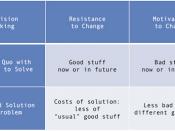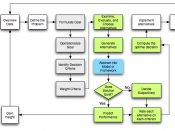Highlight the main advantages and disadvantages of individual versus group decision making. Discuss the main factors affecting decision-making processes in organisations. How can managers ensure effective decision-making? January 2001, Word Count: 3113.
áçDecision making is the process of making a choice between alternativesáè Rollinson (1998).
Decision-making is almost universally defined as choosing between alternatives within an organisation. It is both an objective and subjective process involving both the identification of goals and formulating an orderly process for attaining them, but also the actual decision makersáæ characteristics and traits may promote expendancy shortcuts and excepting less than ideal alternatives. It should further be noted that in accordance with Minzberg and his conceptualised empirically based three stage phases of decision making: identification, development and selection, he deduces that it is also a dynamic process as there are continuous áÃÂ¥feed-backáæ loops in each of the phases. áçFeed-back loops can be caused by problems of timing, politics, disagreements among managers, inability to identify an appropriate alternative or implement the solution, turnover of managers, or the sudden appearance of a new alternativeáè Herbert A Simon (1955).
Decision-making is one of the foremost primary responsibilities of management and executives alike at all levels of the business organisation, and is directly related to all of the traditional management functions. Subsequently it is adhered to be one of the riskiest and toughest purposes that managers have to undertake. The quality of a managersáæ decisions directly effects his or her career opportunities, rewards and job satisfaction, but more prominently the resulting decisions contribute to the success or potential failure of an organisation. Bad decisions have the potential to irreparably damage a business or career. Decision-making is a sequential process rather than a series of steps, and should be thought of by managers as a means rather than...


